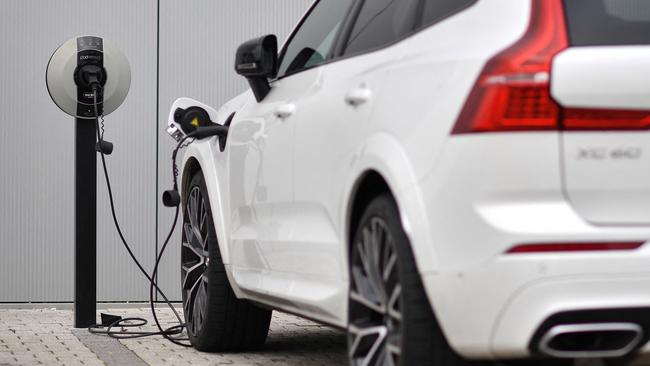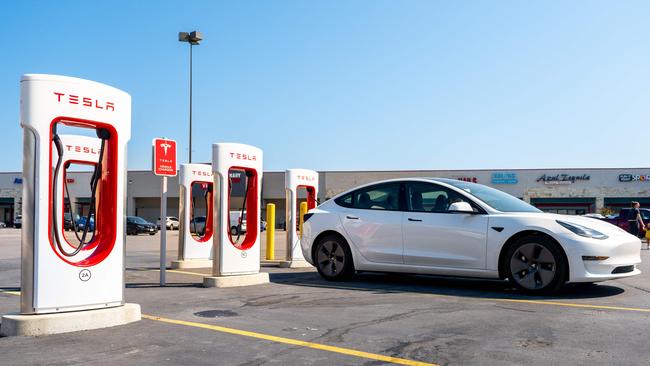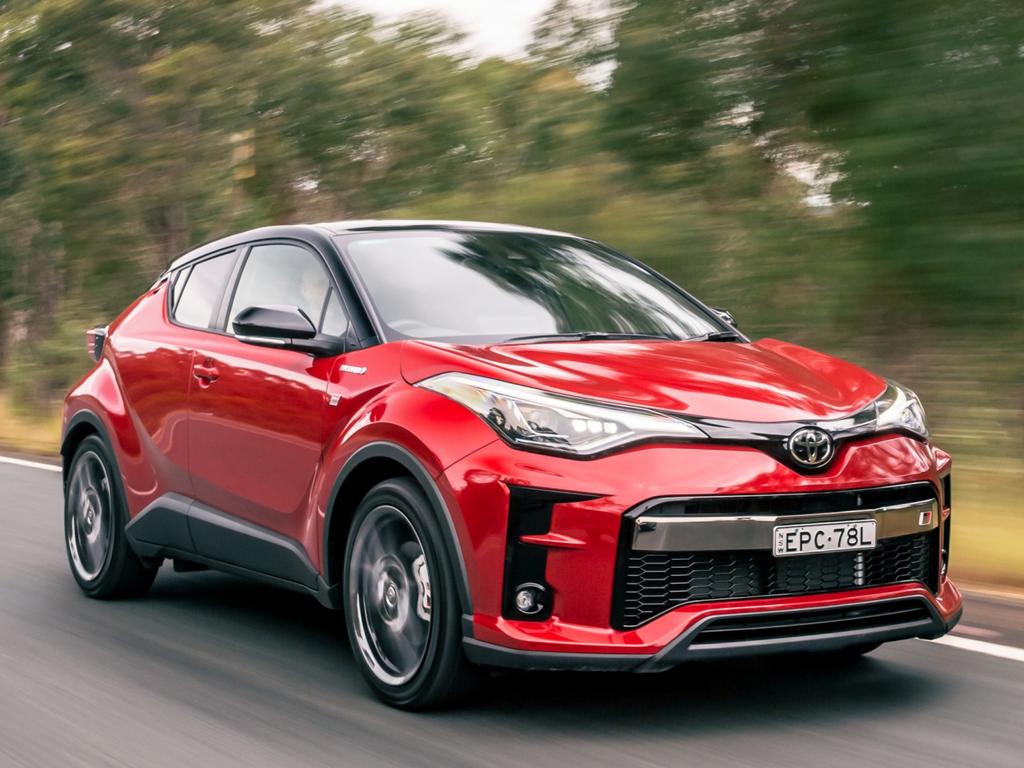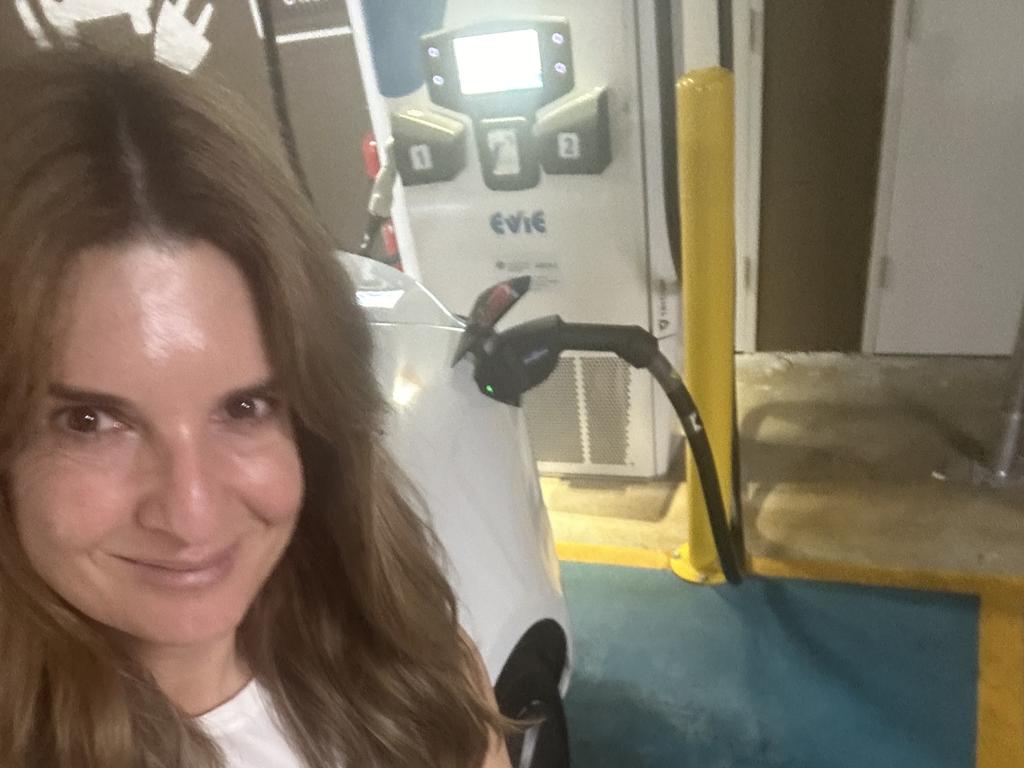Electric vehicles versus hybrids: why there is a clear winner
After crunching the numbers and owning both an EV and a hybrid, it’s clear why one comes out on top.

Despite strong price discounting, demand for electric vehicles has slowed with Tesla sales down 49 per cent in September and 19 per cent year to date. In contrast, sales for hybrid vehicles are booming, up 96 per cent year to date and outselling EVs two to one.
If the slump continues we may see the EV market fail to grow for the first time since 2016. But why have EVs fallen out of favour with new car buyers?
Financially, EVs have never been more attractive. Back when Teslas cost more than $100,000 the biggest problem was the large depreciation hit. But with strong competition in the sector, EVs are now within the reach of most buyers and prices are getting closer to equivalent internal combustion engine models meaning other factors must be at play.
Over the past five years the EV market has been supported by various state government incentive schemes to encourage their take-up. However, these have now been wound back, which partly explains the falling EV demand.
In addition, rising energy prices affect the cost to recharge at home if you do not have solar panels. ABS data shows electricity prices have increased by 6 per cent over the past 12 months but would have been closer to 15 per cent if not for the federal government’s $3.5bn Energy Bill Relief Fund that ends this financial year.
And charging in public is not any better. One of Australia’s largest EV charging providers with more than 260 locations increased charging prices by 80 per cent over the past five years.
From a tax perspective it still remains attractive for people to purchase an EV using a novated lease, particularly if they are on the 47 per cent marginal tax bracket. The Electric Car Discount Bill allows employees to purchase EVs up to $91,387 and use 100 per cent of their pre-tax income to fund the finance and operating costs.
In addition, under a novated lease, employees do not have to pay GST on the purchase, effectively bringing down the acquisition cost by a further 10 per cent. And best of all, no logbook is required for an EV novated lease.

Even with strong EV tax incentives providing a tailwind, new car buyers are opting for hybrid vehicles. And of the 130,000 hybrid vehicles sold so far this year, this writer has purchased one of them.
Working through the considerations, it became clear why hybrids are preferred over EVs and why Labor’s 2019 announcement that EVs should make up 50 per cent of new car sales by 2030 is unlikely to come to fruition. They currently account for 8.5 per cent.
Crunching the numbers on two popular vehicles – a Tesla Model 3 ($60,000 cost) and a Toyota Camry Hybrid ($45,000), the hybrid is cheaper to own over a five-year period when depreciation, operating and maintenance costs are considered. The five-year ownership cost of a Camry hybrid cost is $41,000 while the Model 3 is $45,000 assuming each car is driven 12,500km per year.
That said, the more you drive an EV, the more the numbers will swing in your favour. A Camry hybrid uses about 5.5 litres of petrol per 100km whereas a Tesla Model 3 uses about 15kWh per 100km. Assuming $2 petrol prices and 50c per kWh charging, the Tesla is more cost effective at $7.50 per 100km driven versus the Toyota at $11 per 100km.
From a lifestyle perspective, hybrids are the clear winner. They require less planning when it comes to refuelling. Although expanding, EV infrastructure is still lacking.
In metropolitan areas, it can be a struggle to find an available or working charger and if going on a road trip careful planning is required to ensure that you do not run out of battery given chargers are few and far between. And not to mention the inconvenience of waiting around between 30 to 60 minutes while your EV recharges.
Personally owning both an EV and a hybrid, EVs do have a sweet spot, but it is quite narrow. Our EV has been a great second vehicle to drive the kids around town and recharging costs have been close to zero having off-street parking, a large solar system and the ability to recharge on sunny days. But for longer trips, the hybrid is more versatile and you do not suffer from dreaded “EV range anxiety”.
For now, EVs can be practical for some people, but for many, the inconvenience of recharging outweighs the benefits and hybrids are likely to remain the vehicle of choice over the next five to 10 years until EV infrastructure catches up.
James Gerrard is principal and director of Sydney planning firm www.financialadvisor.com.au





To join the conversation, please log in. Don't have an account? Register
Join the conversation, you are commenting as Logout